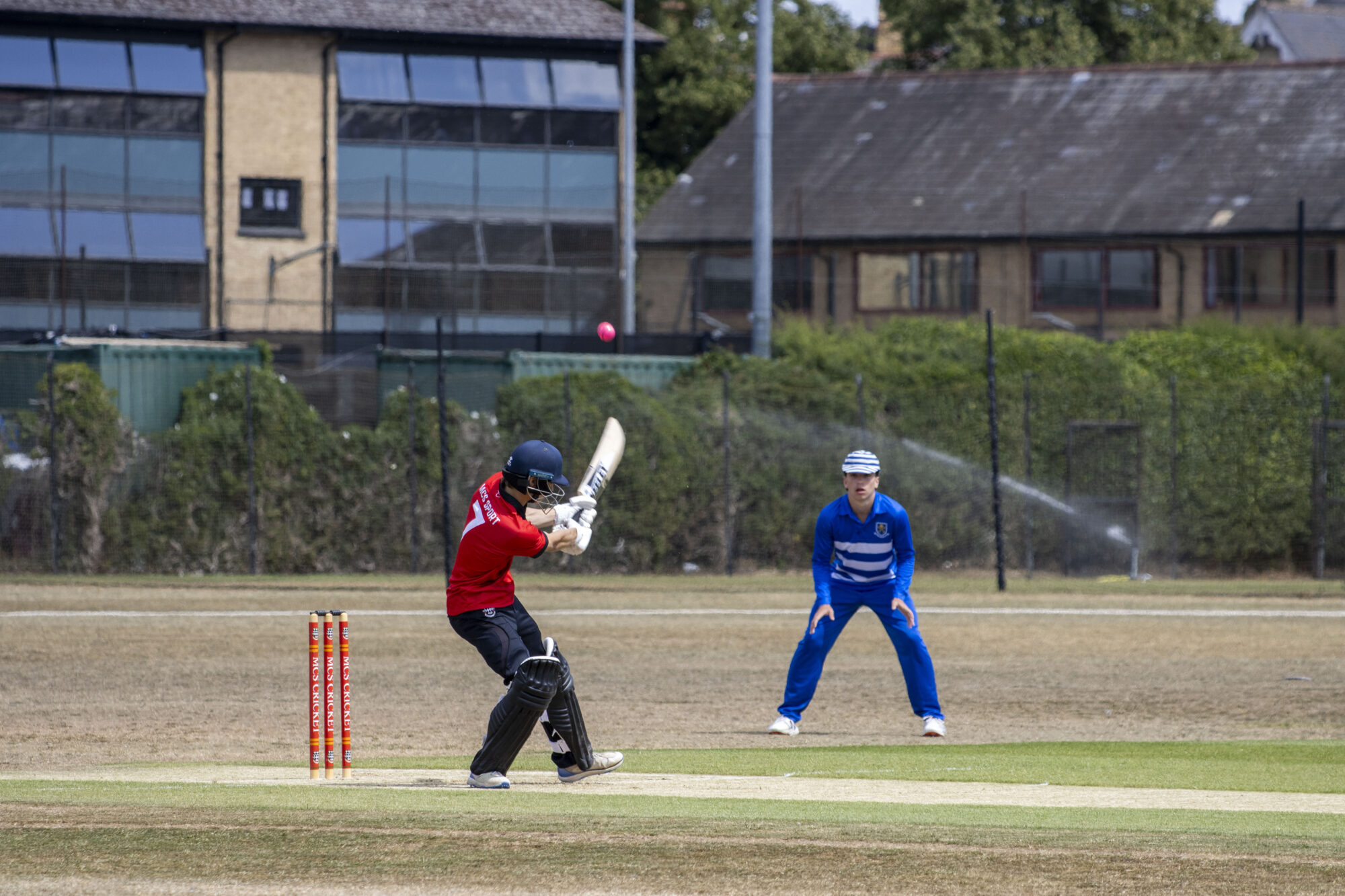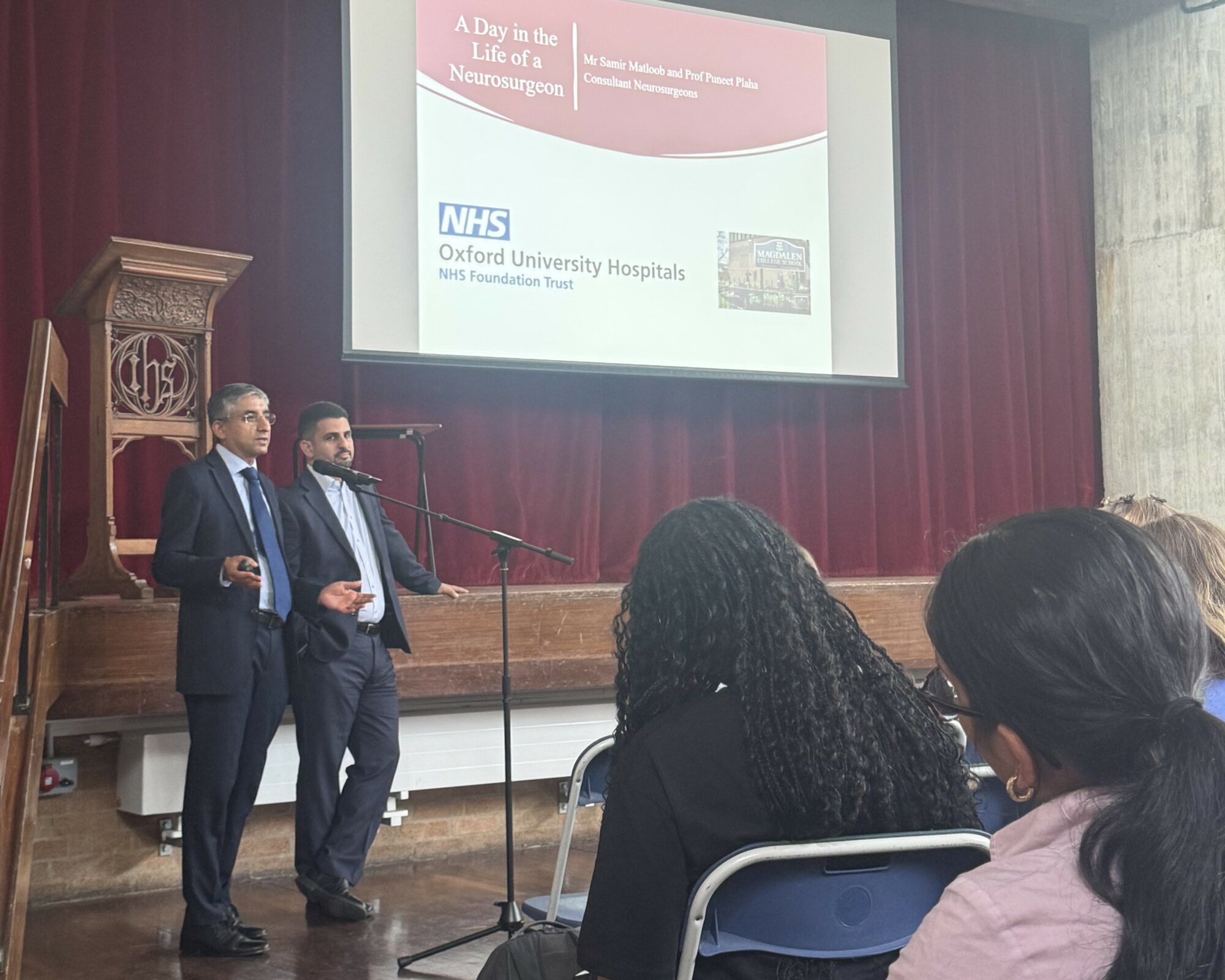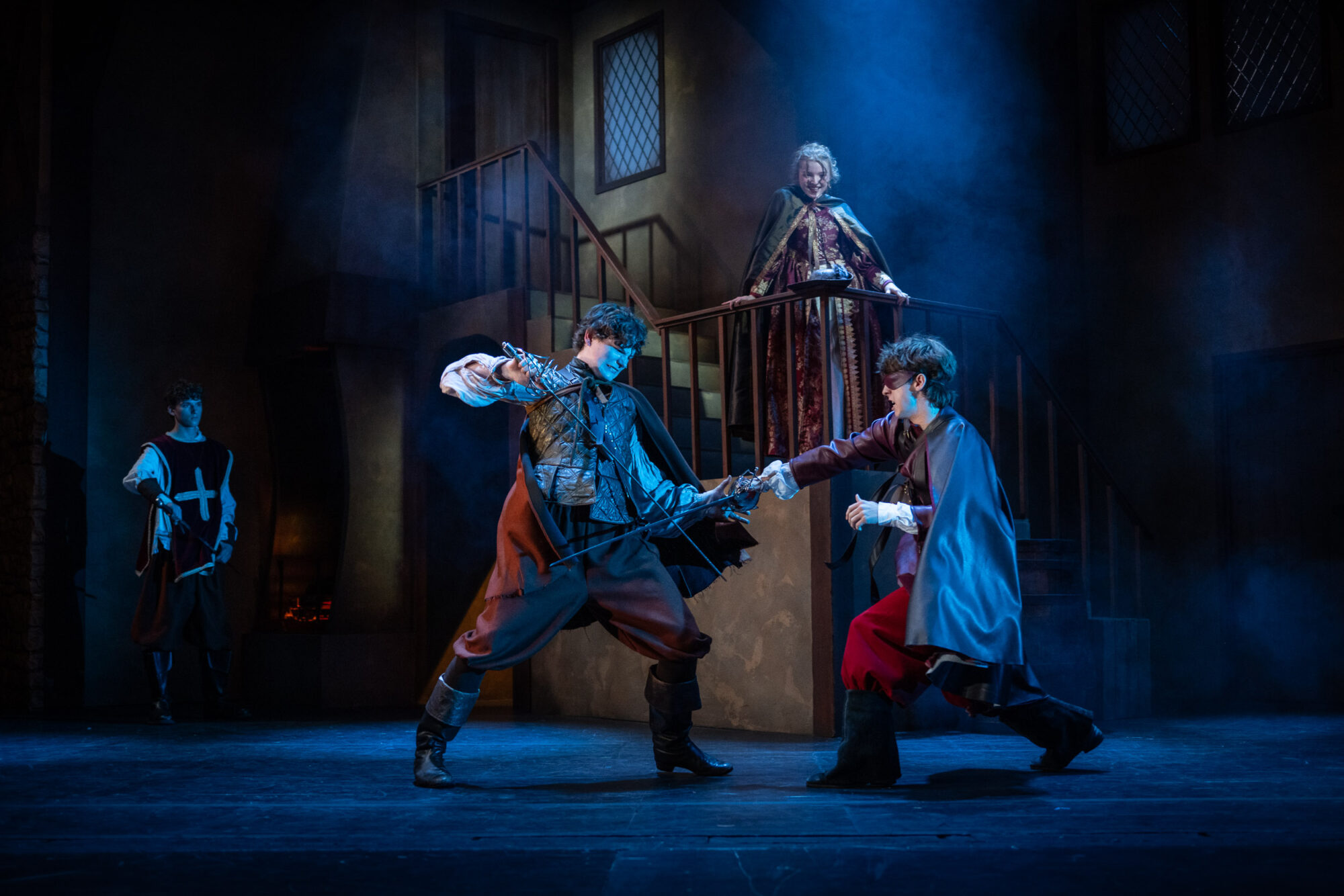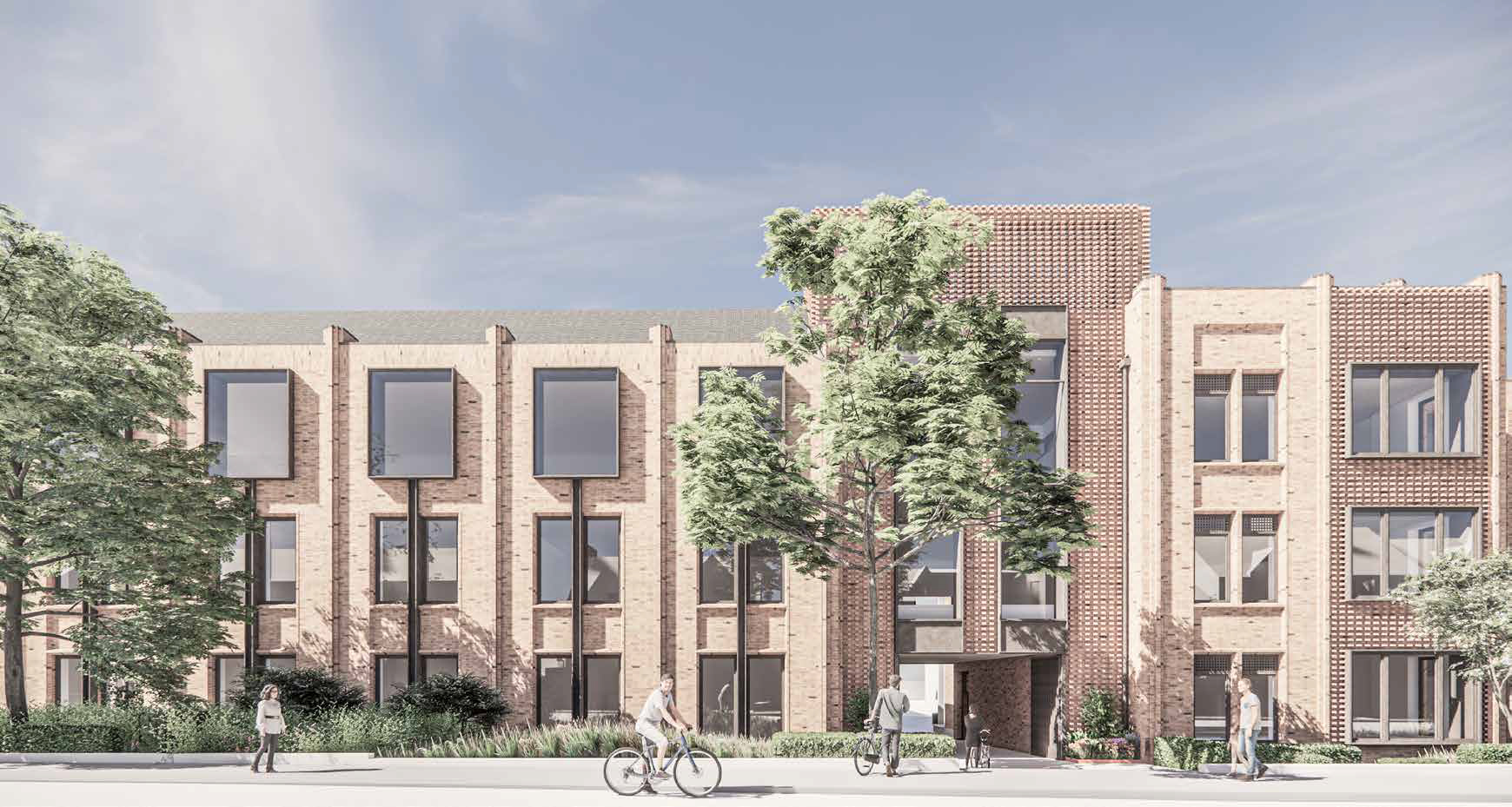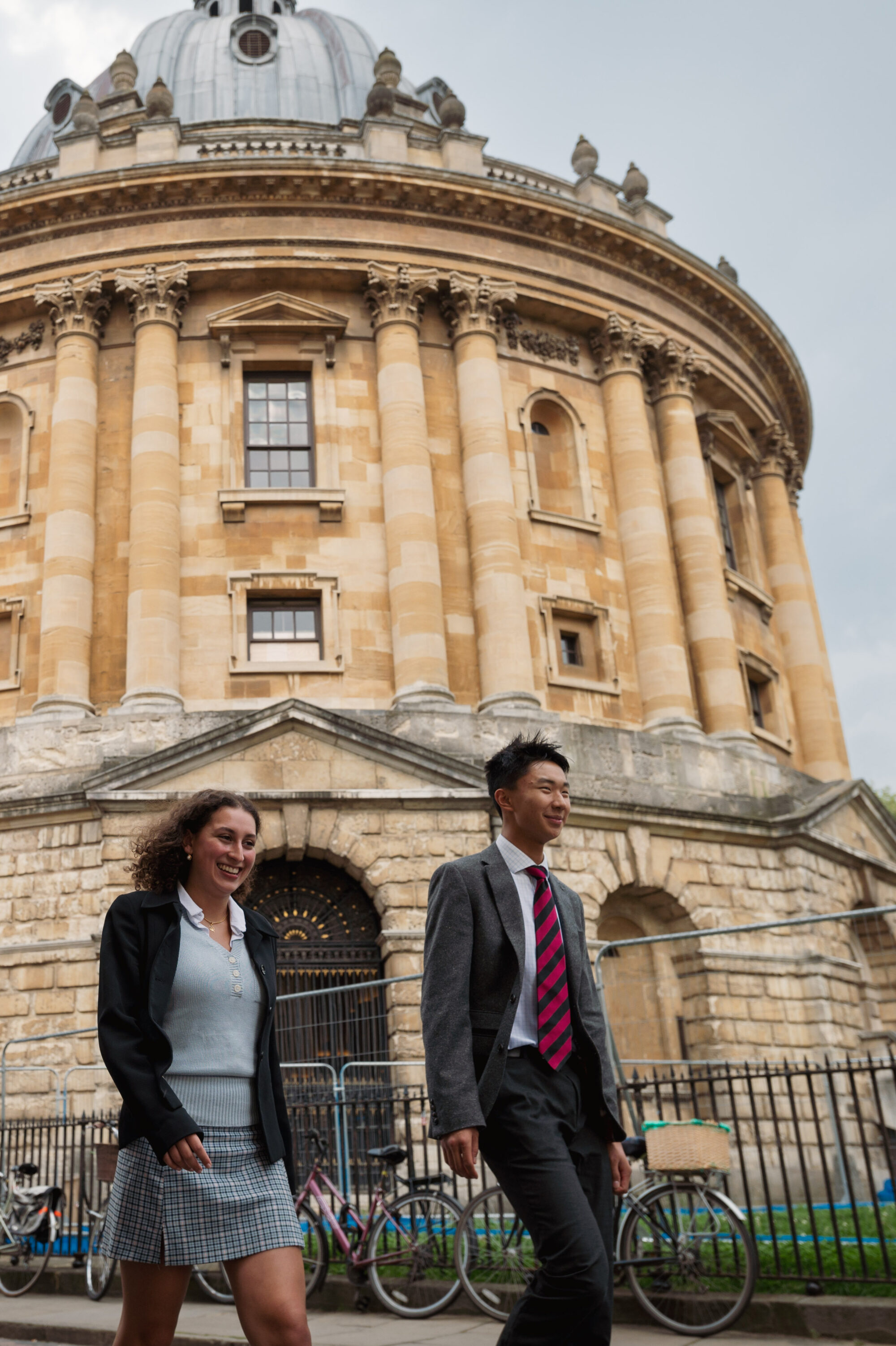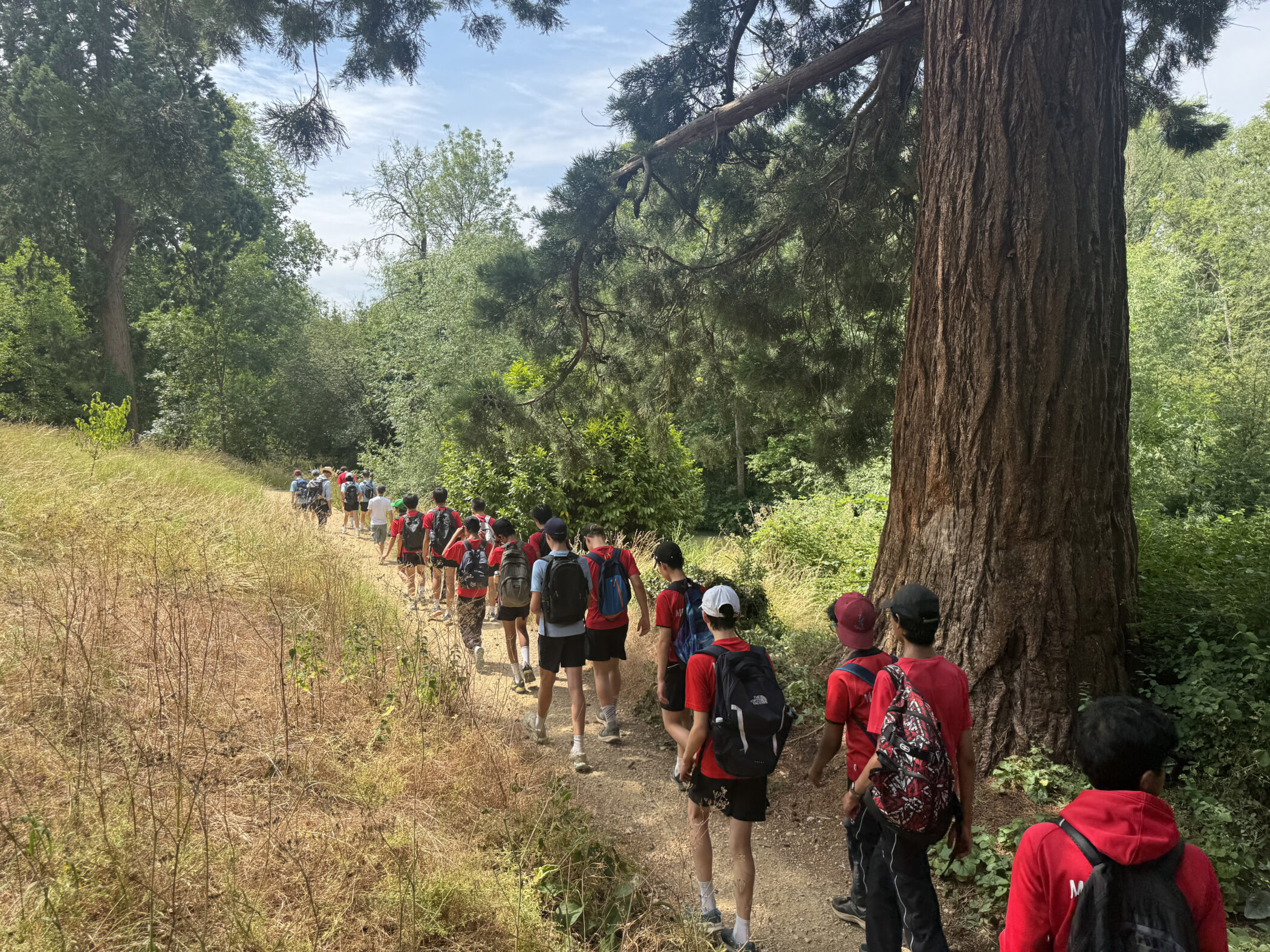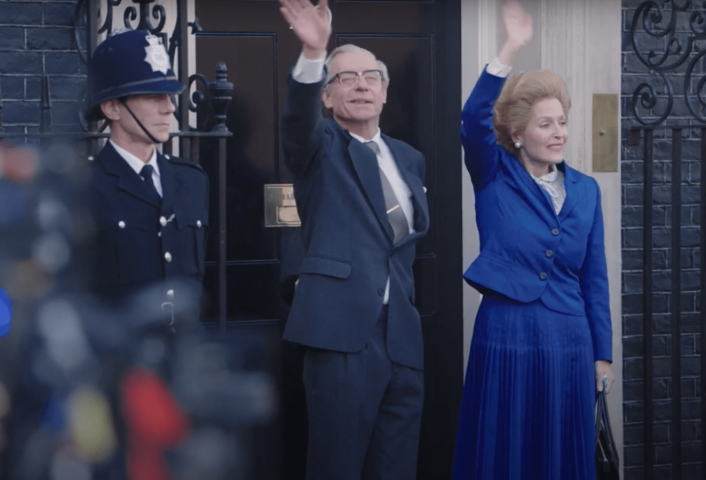
Stephen Boxer, OW 1967, plays Denis Thatcher in series 4 of The Crown, on Netflix. Here Stephen shares how 2020 has felt from an acting perspective.
“I was fortunate to come to the end of a six month contract playing Denis Thatcher in The Crown on March 20th, the week before lockdown began. Fortunate for several reasons. It’s a notoriously insecure industry, I was well remunerated and we are a family of four, so I knew we could weather the storm of coronavirus economically, if not psychologically.
Initially, I wanted to do something, and leant my support to Sam Mendes noble and successful push to persuade Netflix, my recent employer, to contribute towards allaying the hardship engendered by the virus on the acting profession in particular. The Crown cast past and present put their signatures to a drafted letter of support for Sam, whom I’ve known and worked with on occasion since the 1990’s, as well as both of us being ex MCS and having been taught English by the legendary Brian Martin.
After a few weeks of socially distanced walking, queuing patiently at the supermarket, getting inventive with the supper menus at home, doing the odd bit of Additional Dialogue Recording for The Crown (a real treat – I’d cycle into Soho on a perfect summer day, enter an immaculately sterilized studio and communicate with my director through Zoom, coordinating new or clearer versions of dialogue onto an edited version of a scene) and doing endless DIY on a Victorian house, the novelty was beginning to pall.
One project I worked on this summer was an i-film production of Birdsong, the Sebastian Faulks novel about the First World War. It entailed setting up a small studio (bedroom/attic) in each of the participating actor’s houses (we were about a dozen), supplying each of us with i-phones (naturally I was probably the only one who didn’t already have one), and sending us all costume and props, lighting and sound equipment. This included a green screen, which was to be suspended behind us in order that a computer generated background could be superimposed in post-production. We learnt our lines, rehearsed on zoom and ironed the creases out of our green screens. No one told me it contained artificial fibres so when it started to melt I decided better a crease than a hole. We played our scenes straight to the i-phone camera, and had the Zoom link on quietly to reduce feedback so that we could hear the cues from our fellow actors in Chiswick/Hastings/Cardiff/wherever. I was in Crouch End, North London. Not easy to have a row with your screen wife when she’s the other side of town and all you see is yourself acting – not a pretty, desirable or particularly helpful sight. Then it came to downloading the scenes on We Transfer to Central Office to be edited together by our presiding technical genius. Now to many of you reading, this would be meat and drink, but to me it was a voyage into purgatory. When our technical director said press the third button on the left and it was the size of a pinhead (my index finger is relatively the size of a large mallet), I began to lose the will to live. No matter, we ended up with the first i-phone home-based feature film over two hours long, with narrative links read by the author, which garnered a few five star reviews, made back its costs on a weekend u-tube platform, and kept a good number of us engaged, enraged and ultimately fulfilled for several weeks.
We’ve just finished a second, The Haunting of Alice Bowles, and in between I’ve been to Madrid to film a Spanish/American television series, La Fortuna where we were allowed to act without masks, though the crew were all masked, and we were regularly tested – I’m glad to say negatively – for covid. There was an eerie privilege in being able to walk a deserted Madrid and have The Prado, Palacio Real, cathedral, the galleries and streets and cafes of the old town virtually to oneself, and return to a hotel of 260 rooms where only 20 were occupied. The more than solicitous hotel staff were as grateful to assist as I was to be assisted. Consequently I spent a whole evening as the sole customer in a recommended restaurant, chatting to the waiter and chef, as if I was at home in their kitchen. A reminder that above all, we crave human chemistry – it’s what I, by good fortune, do for a living, and it really is the stuff of life.”
 MCS ranks among the top independent secondary schools, and in 2024 was awarded Independent School of the Year for our contribution to social mobility.
MCS ranks among the top independent secondary schools, and in 2024 was awarded Independent School of the Year for our contribution to social mobility.

 28 of our pupils achieved 10 or more 8 or 9 grades in 2024.
28 of our pupils achieved 10 or more 8 or 9 grades in 2024.
 In 2023-24, MCS received over £448,000 in donated funds.
In 2023-24, MCS received over £448,000 in donated funds.